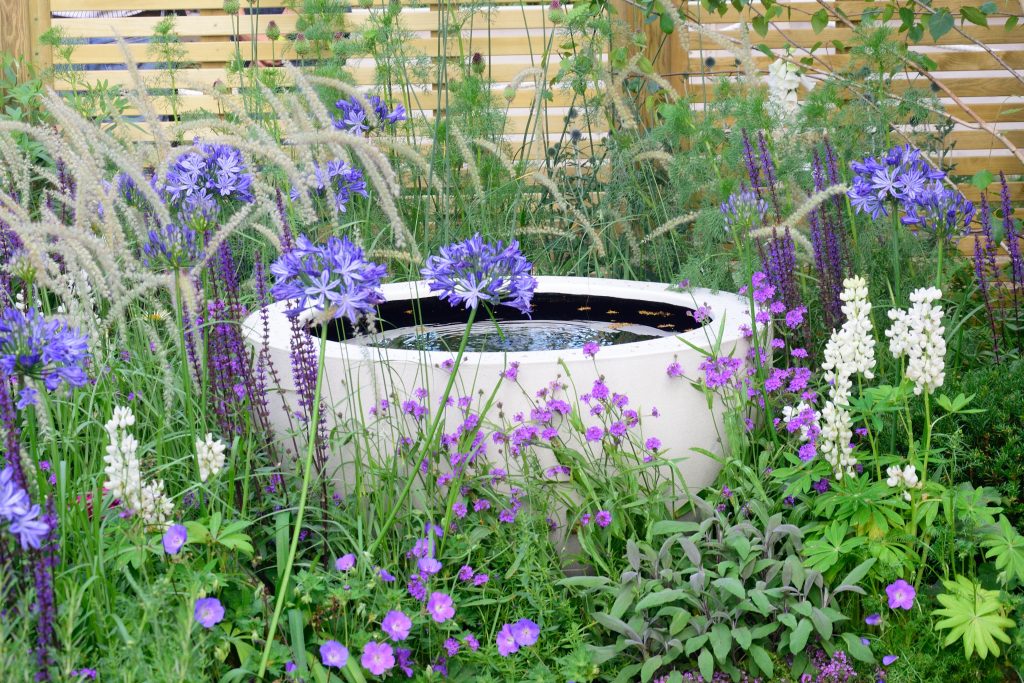Sensory gardens and their benefits for the elderly in care
Being outside and having a connection with nature brings universal benefits to everyone. But why is this connection especially important for individuals in the care setting?
A sensory garden is a garden that has been designed to stimulate and enrich the senses. This includes sight, touch, sound, smell, and sometimes even taste!
A thoughtful sensory garden should include visually stimulating plants, that not only add colour, but also interest in other ways such as a unique leaf shape or texture, movement, varying heights, and architectural structure.
Focal points such as a water feature, or a bench at the end of a path can create a feeling of destination and offer a space to reflect or socialise.

Repetition of plants, forms, textures, and materials can also help to create a calming and therapeutic space. Tall grasses add visual interest throughout the year, but also therapeutic sound as they sway in the wind.
Studies show that smell is our strongest sense linked to memories, which is why it can be so beneficial in a care home setting. A sensory garden should incorporate lots of different smells, not only of flowers but also foliage such as mint, thyme, and rosemary.
Sensory gardens have proven to be beneficial in reducing some of the deliberating aspects of living with dementia, as well as improving general health and wellbeing. This is increased even more when people living with dementia can participate in gardening. People with Alzheimer’s and dementia can feel a sense of purpose and accomplishment if they are given the opportunity to work in a sensory garden. Familiar scents such as rose or lavender or being able to select flowers for a colourful bouquet can spur memories of things they enjoyed in the past.
Enjoy connecting with nature
People can experience an improved quality of life by being able to spend time outdoors.
Build community
A beautiful garden that residents enjoy being in can be a fantastic way to promote socialisation in a care home setting.
Stimulate the senses
Sensory gardens have the positive effect of stimulating all the senses simultaneously!
Decrease unwanted symptoms
Research suggests that sensory gardens can help decrease confusion and anxiety and agitation, helping improve the well-being of individuals.
